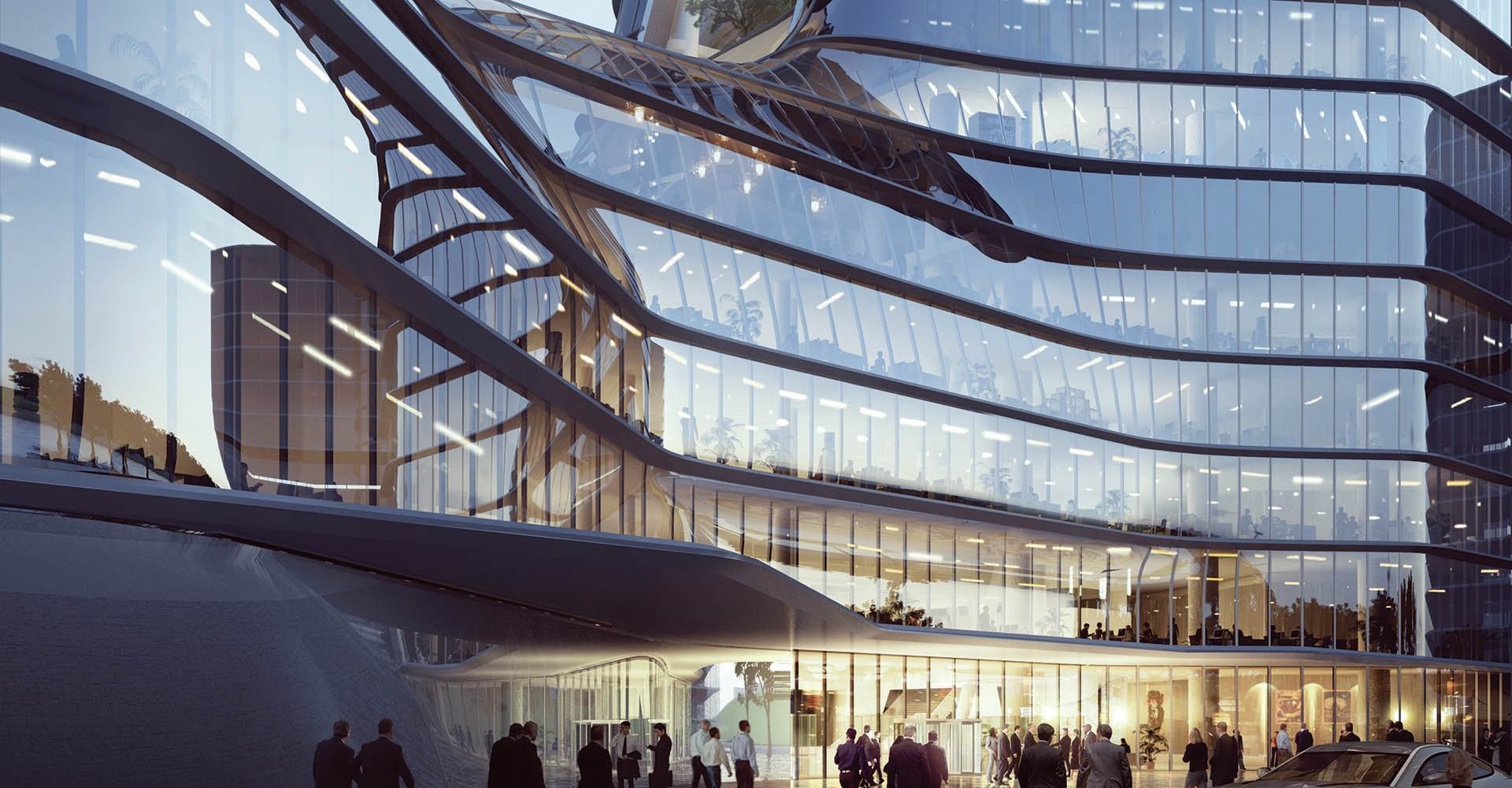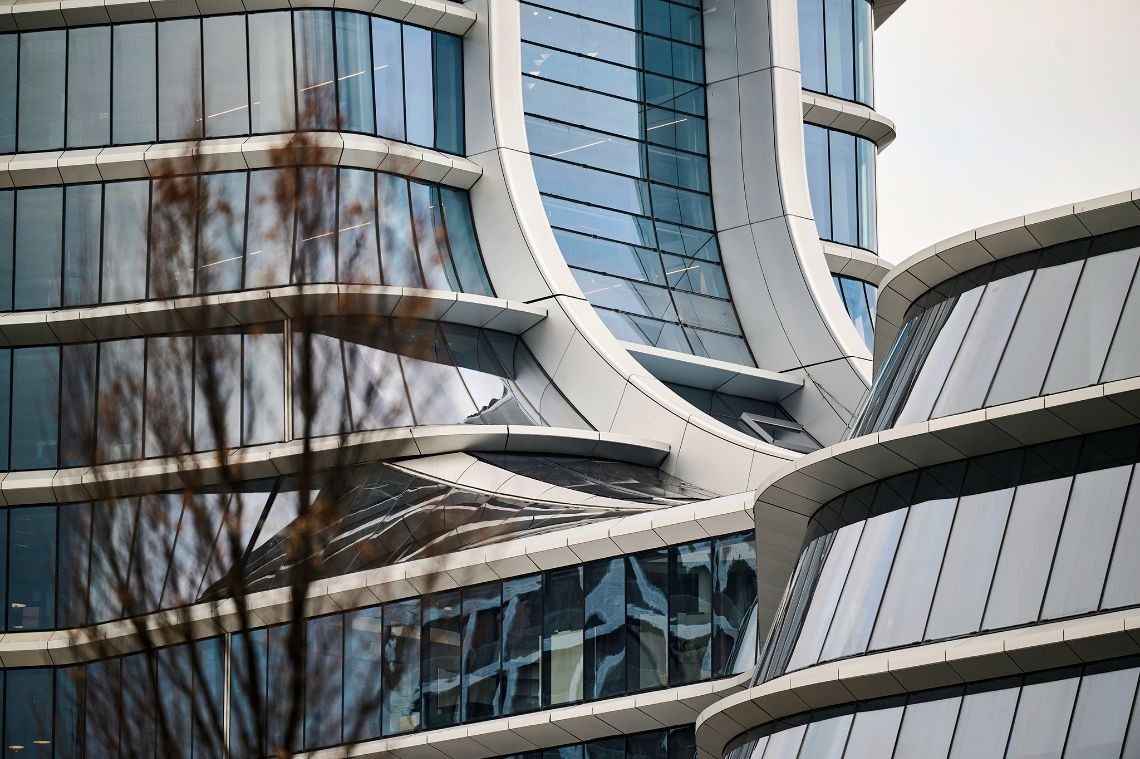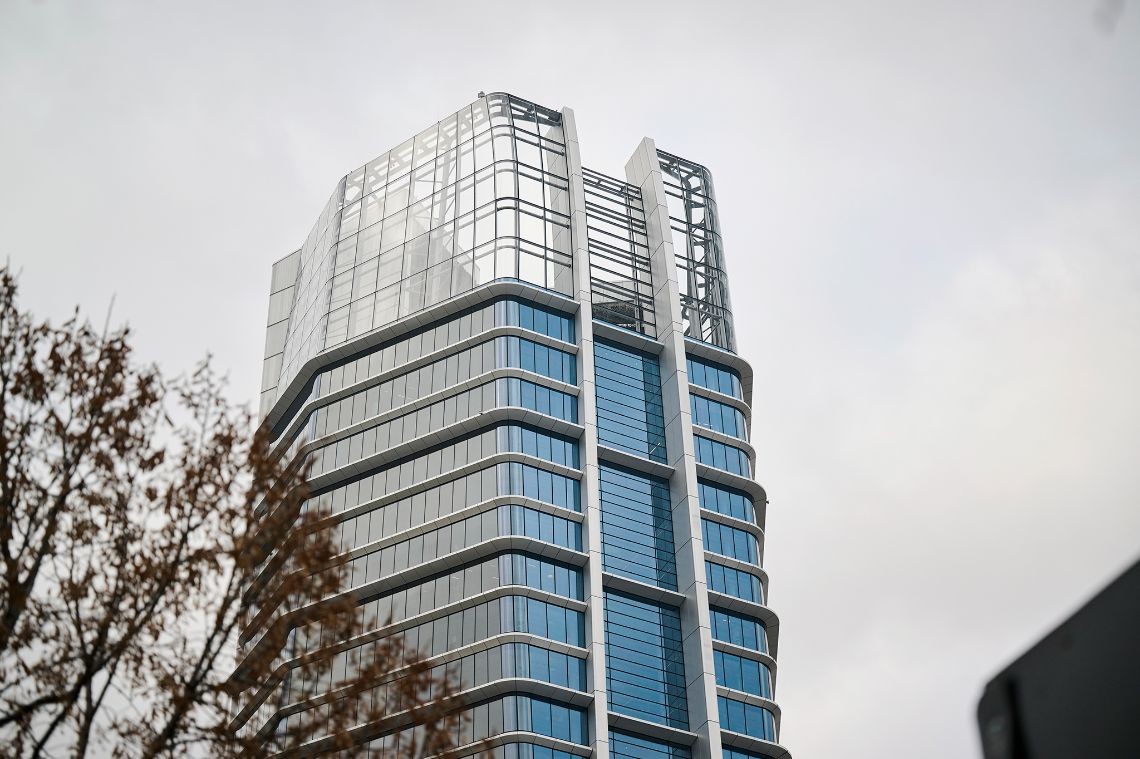Architect: Foster+Partner, Finta Studio
Client: MOL
Location: Budapest
Use: Office
Located in Budapest, new MOL headquarter designed by London-based Foster+Partners and Hungarian Finta Studio is going to be the city's tallest building. A large 5 story podium is connected with a sweeping facade to the 29-floors high tower, with top terrace slab at 120 m and a continuous atrium connecting seven sky-gardens from the base to the top of the building, concrete proof of the sustainable mark that runs transversely across all the project.
Starting from schematic stage, Koltay Façades joined the iconic project as facade consultant. The challenge here is to provide sound design and reach the highest performances on a large scale organic-shaped envelope with multiple facade systems and glass shapes: double curvature issue is faced in order to reach the optimal balance between architectural needs and cost efficiency.
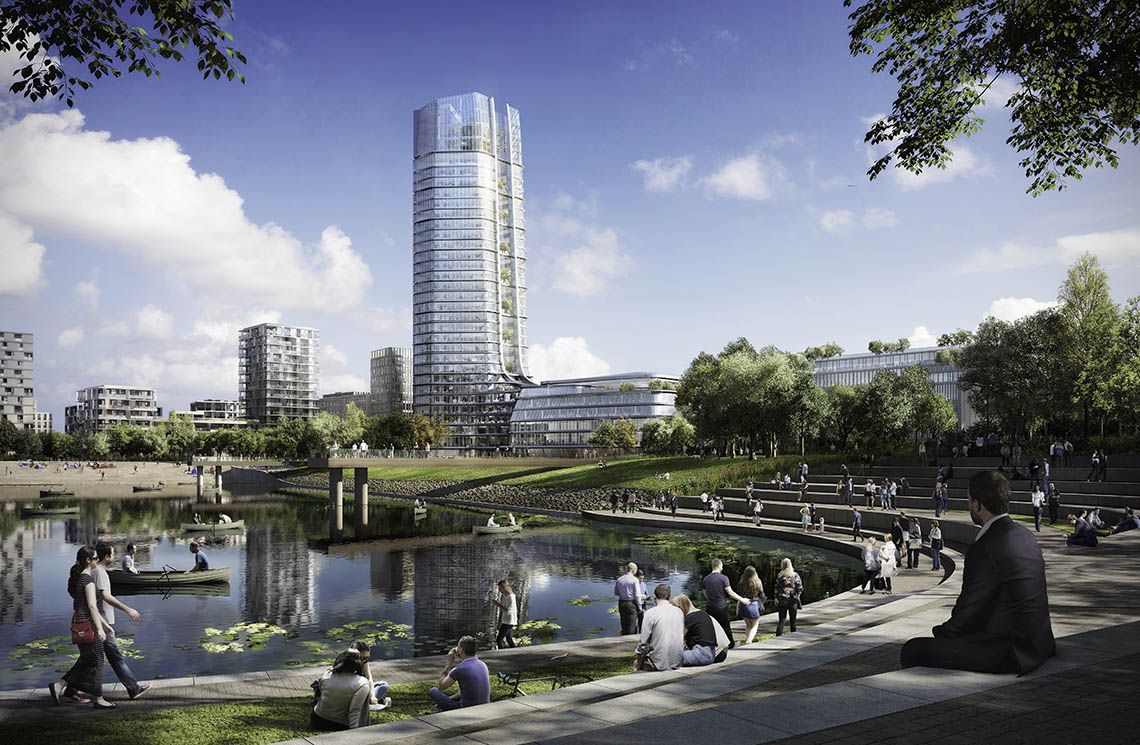
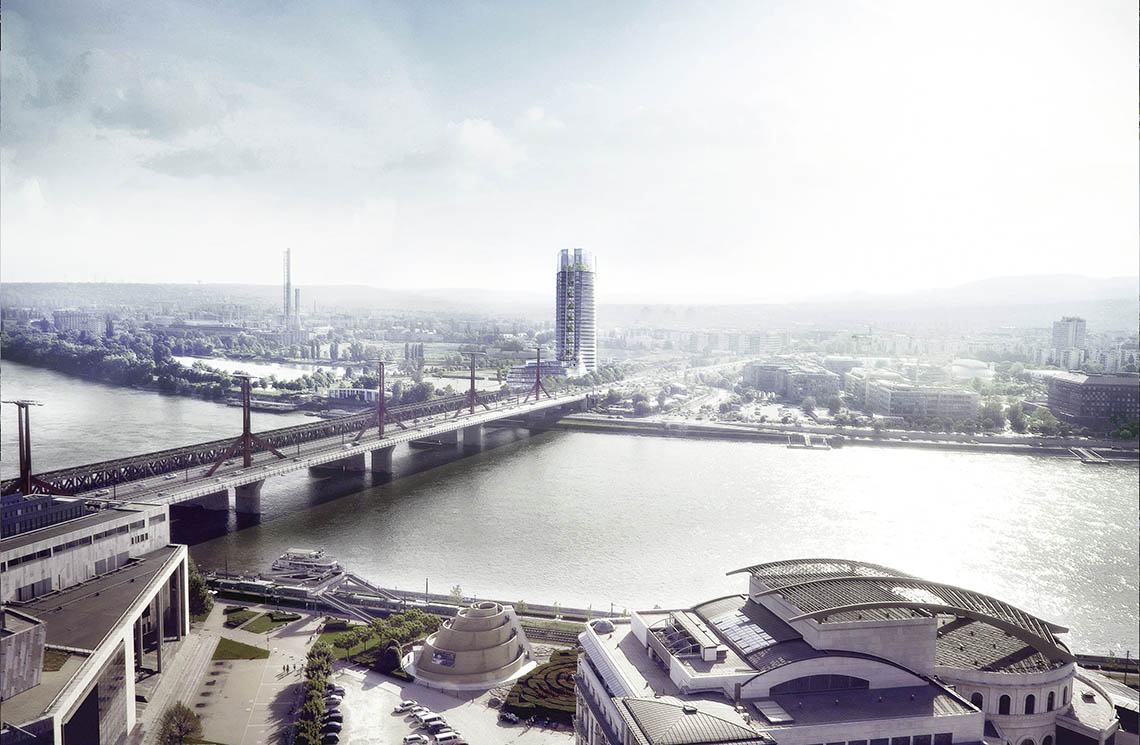
TRAFFIC. AND A TRAIN.
MOL Campus location is strategical: along the Danube river, just next to the Rakoczi Bridge that connects the Kelenfold neighborhood to the inner city, daily commute path for thousands of people, both by car and train. On the other side, a huge source of noise, leading to very strict acoustic requirements on a almost fully glazed building.
Starting from the raw noise data provided by the Acoustic Consultant, we first specified the minimum requirements for the glazing to achieve the necessary level of performance for each single facade area, then cross-referenced with structural requirements and optimized to reduce the different typologies of IGUs. Finally, we derived a 3D glazing mark up to assist the Architect and the Contractor in the construction stage.
GLAZED CURVES
Double curved glazing units are spread around the envelope of this ambitious project and contribute massively to the final result of MOL Campus. To design, engineer and produce such elements was one of the biggest challenge of this project.
Our designers were busy in a 3D modulation workout to ensure panel alignment and minimizing curved glass while keeping a smooth shape, so that all the panels could be manufactured with the highest cost efficiency.
Our engineers had to develop a workflow for structural verification of the curved glass able to keep the pace with the process of optimization and re-modulation of the envelope, including the effect of climatic loads (up to 5 times bigger than wind loads on curved units),very strict acoustic requirements and safety limitations.
Our consultants, finally, worked closely with a top tier Italian manufacturing facility and found the most suitable solution to provide high-performance coating to flat, single and double curved glazings - both on concave and convex surfaces - and ensure visual consistency.
